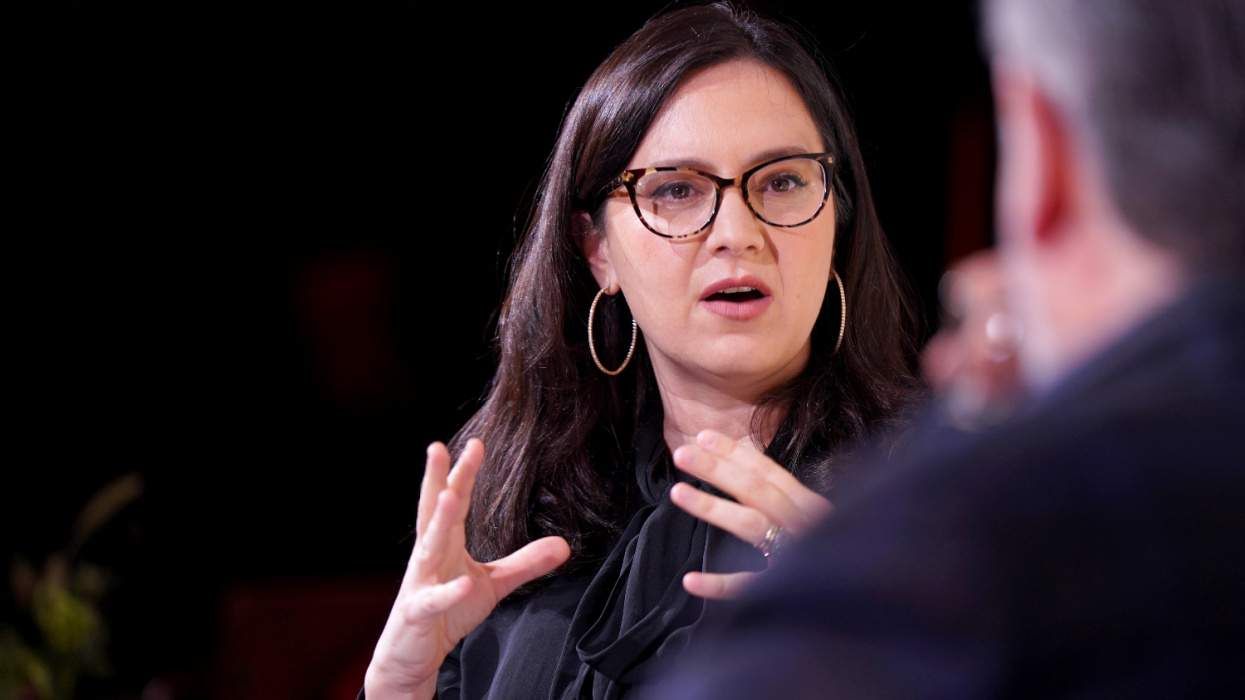Marco Rubio -- who has alternately been championed on magazine covers as "The First Senator From the Tea Party?" and "The Republican Savior" -- is starting to roll out a more moderate portrait. In practical terms, that has meant muddying his position on marriage equality as he runs for president.
Rubio opposes same-sex weddings, but would attend one; he disagrees with "the choice," but doesn't think homosexuality is chosen. States should prohibit gays and lesbians from marrying, but if citizens want to change the law they should be able to, but he hopes they won't.
Got all that?
Call it splitting hairs, threading the needle, or just not knowing what it is he's trying to say. Either way, he seems to want to soften his anti-equality stance without actually moving it. Take, for example, his interview with Face the Nation host Bob Schieffer this weekend.
"You have said you're against gay marriage," prefaced Schieffer. "Do you think that homosexuality is a choice?"
"Well, first, it's not that I'm against gay marriage," said Rubio, who has literally supported a ban on same-sex marriage in his home state. The U.S. senator from Florida encouraged his state's attorney general to continue fighting to keep a marriage ban; he said at the time, "I do not believe that there is a U.S. constitutional right to same-sex marriage," and he lent his voice to robocalls by the National Organization for Marriage.
But now, while Rubio still says, "I don't believe same-sex marriage is a constitutional right," he also says it should be put up for a vote. That sounds a lot less like Ted Cruz and more like Chris Christie, who vetoed a marriage bill in New Jersey while saying it should be put up for a majority vote. "States have always regulated marriage," Rubio told Schieffer. "And if a state wants to have a different definition, you should petition the state legislature and have a political debate."
On the question of whether being gay is a choice, Rubio was unclear. "I also don't believe that your sexual preferences are a choice for the vast and enormous majority of people," he said, never explaining for who it still is a choice. "The bottom line," he said, forgetting his earlier caveat, "is that I believe that sexual preference is something that people are born with." At least, most people?
In a separate interview, with Univision's Jorge Ramos, Rubio was sure same-sex couples had made a decision he disagreed with -- even if it isn't that one about being gay in the first place. Rubio was asked if he'd attend a gay wedding, and he said he wanted gay and lesbian viewers to know "I'm not going to hurt them" even if he disagrees with their "decisions."
"If there's someone that I love that's in my life, I don't necessarily have to agree with their decisions or the decisions they've made to continue to love them and participate in important events," he said. When asked to clarify if that means he'd actually go to the wedding, he said, "Of course I would." After all, it's not him making all those bad "decisions" and "choices."
"I'm not going to hurt them simply because I disagree with a choice they've made or I disagree with a decision they've made, or whatever it may be," he said. "Ultimately, if someone that you care for and is part of your family has decided to move in one direction or another or feels that way because of who they love, you respect that because you love them."
Rubio didn't say whether there were any gay weddings in his immediate future. Maybe two lucky gay grooms might look out from the altar someday soon and see Marco Rubio staring back, harboring sentiments like "Supporting the definition of marriage as one man and one woman is not antigay. It is pro-traditional marriage."
Rubio has also referred to LGBT parents as "a social experiment," and he has done fundraising for the Florida Family Policy Council, a group that promotes "pray away the gay" counseling for children that several states have outlawed as a form of abuse.
This isn't Rubio's first attempt at needle-threading. He's been the target of identical accusations when it comes to immigration: Vox wrote that he had "his own approach to threading the needle on immigration," and Politico chimed in that "Marco Rubio tries to thread immigration needle." U.S. News wrote that when it comes to foreign policy, Rubio "appears to be working hard to thread the needle of proving to be unquestionably conservative but without losing mainstream credibility and appeal."
When Schieffer asked whether Rubio, if elected president, would sign the very immigration bill he once proposed, he answered, "That's a hypothetical that will never happen."
Former President Bill Clinton was famous for "triangulation" on issues, which meant he claimed to have the same position as his opponent ("It's not that I'm against gay marriage," says Rubio) while simultaneously explaining how his view was ever so slightly different. The idea was that Clinton would appeal to his base while also stretching across a political divide over an issue. Rubio seems to be trying to do the same thing -- but he's having less success.















